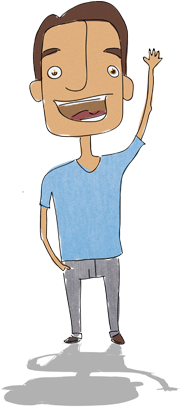I’ve seen people at conferences giving the same talk they gave two years ago. Activists speaking and organizing in ways unchanged since 2015. Educators facilitating workshops with a curriculum written in 2012.
The world is different now than it was then.
The people you’re working with — or against, or for — have different mindsets, beliefs, knowledge, perspectives, values, opinions, grudges, predispositions, awarenesses, and biases now than they did then.
The world you’re working in — and trying to improve — is comprised of different technologies, constituencies, zeitgeists, cultural norms, and public knowledge now than it was then.
And the “then” could be yesterday. Or last year. Your “then” could be “before Trump was elected. Or “when we didn’t know this huge thing.” Or “before ‘Black Lives Matter’ activism started.” Or “when we weren’t sure whether this one thing would work or not.” Or “before our community experienced that travesty.” Or “when we didn’t have social media.”
When I started doing social justice work, most people didn’t know what “social justice” meant. They’d never heard the phrase. It was brand new to them. That was the first bar to jump: explaining what I was working to do.
That’s a “then”: when most people I encountered hadn’t heard the phrase “social justice.”
That was barely more than a decade ago.
It has its own parallel “now”: when most people I encounter haven’t just heard of social justice, but they have their mind made up about it — whether for or against. Now, whole communities have organized around their devotion to, or hatred of, social justice.
So it wouldn’t make sense for me to keep doing social justice how I did then. It would be ridiculous to keep truckin’ along, business as usual, and not dramatically shift directions, in the face of this “now.”
But it’s appealing: it would be easier, less scary, and ruffle fewer feathers, to continue in down a worn path, instead of taking the risk to cut a new one.
There’s a whole industry of social justice now, that didn’t exist then. Social Justice, Inc. has created departments of organizations dedicated to supporting my work (and the work of people like me), who might hire me (or people like me) to carry on, business as usual. People for whom the case is already made, who are fluent in the language of social justice, whom I don’t have to convince.
You’d be hard-pressed to imagine a more inviting, well-worn path.
But social justice isn’t about the well-worn path; it’s about the path toward justice.
It’s a way of looking at the world, sure. And a process. But only in service of a goal: a society that is just.
Looking and processing, alone, can’t move us toward that goal. We have to take steps.
And until we’ve achieved that goal, any well-worn path is at best a distraction from the goal, and at worst an obstruction standing in our way.
So we need to reflect on what we were doing, and reconsider how were were doing social justice then:
- Focus, first, on what aspects of our work then (if any) led to a more just “now”;
- Be honest about what might have been distracting us, or getting in the way, or what we were doing then that would be a distraction or obstruction now (with what we know now, or what has changed since then); and
- Stop acting, believing, or thinking how we did then, when those actions or beliefs or thoughts don’t align with what is needed now.
Take a deep breath of what has changed — in the world, in people’s minds and hearts, and in our own personal attitudes, beliefs, and actions.
Now exhale, pick a new direction, and step forward.
For me, one step forward I am taking is to stop performing the comedy show, “It’s Pronounced Metrosexual,” that led to me creating this site. The show that indirectly funded all of the edugraphics and articles and free online resources here, and the other sites/resources I’ve created and co-created, before I started asking you for help.
It doesn’t make sense to keep doing a show I was doing 8 years ago. Before people knew what “social justice” was. Before Social Justice, Inc. Before Social Justice Dogma.
Even if it’s easier to do the show now than ever. Even if it’s terrifying to cut a new trail. Actually, maybe, probably — no — especially because of those things.
But other things make more sense than ever, like uncopyrighting my work, and keeping it freely available. Of course accessibility still makes sense, because it’s core to social justice. So that won’t change.
Everything doesn’t have to change. Just the things that made sense then, but no longer do now.
What’s your then?
How does it look different now?
And what are you going to do about it?


